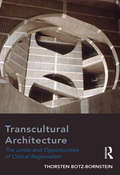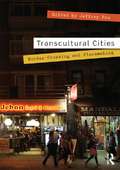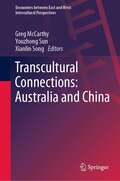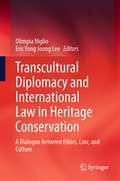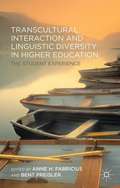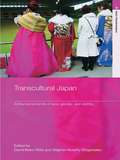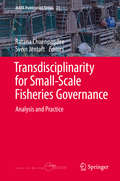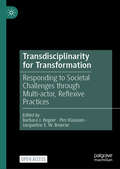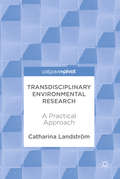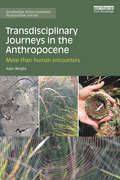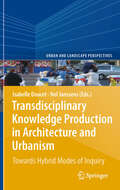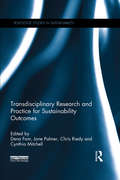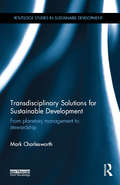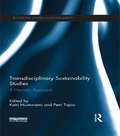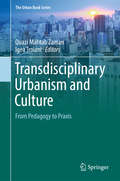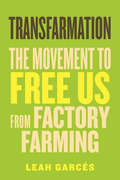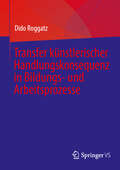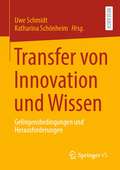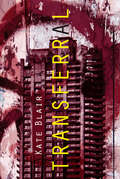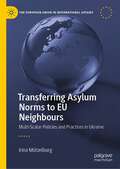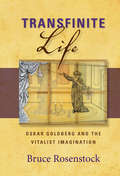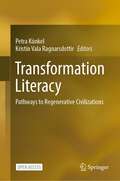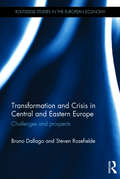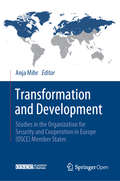- Table View
- List View
Transcultural Architecture: The Limits and Opportunities of Critical Regionalism
by Thorsten Botz-BornsteinCritical Regionalism is a notion which gained popularity in architectural debate as a synthesis of universal, 'modern' elements and individualistic elements derived from local cultures. This book shifts the focus from Critical Regionalism towards a broader concept of 'Transcultural Architecture' and defines Critical Regionalism as a subgroup of the latter. One of the benefits that this change of perspective brings about is that a large part of the political agenda of Critical Regionalism, which consists of resisting attitudes forged by typically Western experiences, is 'softened' and negotiated according to premises provided by local circumstances. A further benefit is that several responses dependent on factors that initial definitions of Critical Regionalism never took into account can now be considered. At the book’s centre is an analysis of Reima and Raili Pietilä’s Sief Palace Area project in Kuwait. Further cases of modern architecture in China, Korea, and Saudi Arabia show that the critique, which holds that Critical Regionalism is a typical 'western' exercise, is not sound in all circumstances. The book argues that there are different Critical Regionalisms and not all of them impose Western paradigms on non-Western cultures. Non-Western regionalists can also successfully participate in the Western enlightened discourse, even when they do not directly and consciously act against Western models. Furthermore, the book proposes that a certain 'architectural rationality' can be contained in architecture itself - not imposed by outside parameters like aesthetics, comfort, or even tradition, but flowing out of a social game of which architecture is a part. The key concept is that of the 'form of life', as developed by Ludwig Wittgenstein, whose thoughts are here linked to Critical Regionalism. Kenneth Frampton argues that Critical Regionalism offers something well beyond comfort and accommodation. What he has in mind are ethical prescripts closely linked to a
Transcultural Cities: Border-Crossing and Placemaking
by Jeffrey HouTranscultural Cities uses a framework of transcultural placemaking, cross-disciplinary inquiry and transnational focus to examine a collection of case studies around the world, presented by a multidisciplinary group of scholars and activists in architecture, urban planning, urban studies, art, environmental psychology, geography, political science, and social work. The book addresses the intercultural exchanges as well as the cultural trans-formation that takes place in urban spaces. In doing so, it views cultures not in isolation from each other in today’s diverse urban environments, but as mutually influenced, constituted and transformed. In cities and regions around the globe, migrations of people have continued to shape the makeup and making of neighborhoods, districts, and communities. For instance, in North America, new immigrants have revitalized many of the decaying urban landscapes, creating renewed cultural ambiance and economic networks that transcend borders. In Richmond, BC Canada, an Asian night market has become a major cultural event that draws visitors throughout the region and across the US and Canadian border. Across the Pacific, foreign domestic workers in Hong Kong transform the deserted office district in Central on weekends into a carnivalesque site. While contributing to the multicultural vibes in cities, migration and movements have also resulted in tensions, competition, and clashes of cultures between different ethnic communities, old-timers, newcomers, employees and employers, individuals and institutions. In Transcultural Cities Jeffrey Hou and a cross-disciplinary team of authors argue for a more critical and open approach that sees today’s cities, urban places, and placemaking as vehicles for cross-cultural understanding.
Transcultural Connections: Australia and China (Encounters between East and West)
by Xianlin Song Youzhong Sun Greg McCarthyThis book is a unique and original contribution to the knowledge of transcultural engagement between the ‘East’ and the ‘West’; notably between China and Australia.The collection explores how the global system universally interrelates East and West, showing how this interrelatedness offers the promise of progress but can evoke the counteracting trend of tribal nationalism. The book addresses the connectedness of human progress by exploring how globalization creates new dynamic interfaces between East and West and how rather than clashes of culture there are growing forms of reciprocity between civilizations and a shared awareness of how humanity is connected through knowledge and international mobility.
Transcultural Diplomacy and International Law in Heritage Conservation: A Dialogue between Ethics, Law, and Culture
by Olimpia Niglio Eric Yong Joong LeeThis book provides a substantial contribution to understanding the international legal framework for the protection and conservation of cultural heritage. It offers a range of perspectives from well-regarded contributors from different parts of the world on the impact of law in heritage conservation. Through a holistic approach, the authors bring the reader into dialogue around the intersection between the humanities and legal sciences, demonstrating the reciprocity of interaction in programs and projects to enhance cultural heritage in the world. This edited volume compiles a selection of interesting reflections on the role of cultural diplomacy to address intolerances that often govern international relations, causing damage to human and cultural heritage. The main purpose of this collection of essays is to analyse the different cultural paradigms that intervene in the management of heritage, and to advocate for improvements in international laws and conventions to enable better cultural policies of individual nations for the protection of human rights. The editors submit that it is only through open dialogue between the humanities and jurisprudence that the international community will be able to better protect and value sovereignty, and promote cultural heritage for the development of a better world. This collection is relevant to scholars working in areas relating to law, management and policies of cultural heritage conservation and protection.
Transcultural Interaction and Linguistic Diversity in Higher Education
by Anne H. FabriciusIncreasing numbers of university students are travelling the globe in search of experiences and qualifications that will ensure their future in many different workplaces. In a world of linguistic diversity, what challenges do they meet, and what barriers, visible and invisible, do they have to overcome? This book presents sociolinguistic research on students' experiences of studying abroad. It gives accounts of students' own expectations, their personal social and psychological developmentsin challenging international study contexts, the demands they face and the breakthroughs they make. Using a range of research methods, the studies illuminate the many linguistic and educational issues that can confront anyone choosing to study or work abroad. It provides a fascinating inside view of the ramifications of a globalized and linguistically diverse educational market from the point of view of those coming of age within it.
Transcultural Japan: At the Borderlands of Race, Gender and Identity (Routledge Studies in Asia's Transformations)
by Stephen Murphy-Shigematsu David WillisTranscultural Japan provides a critical examination of being Other in Japan. Portraying the multiple intersections of race, ethnicity, class, and gender, the book suggests ways in which the transcultural borderlands of Japan reflect globalization in this island nation. The authors show the diversity of Japan from the inside, revealing an extraordinarily complex new society in sharp contrast to the persistent stereotypical images held of a regimented, homogeneous Japan. Unsettling as it may be, there are powerful arguments here for looking at the meanings of globalization in Japan through these diverse communities and individuals. These are not harmonious, utopian communities by any means, as they are formed in contexts, both global and local, of unequal power relations. Yet it is also clear that the multiple processes associated with globalization lead to larger hybridizations, a global mélange of socio-cultural, political, and economic forces and the emergence of what could be called trans-local Creolized cultures. Transcultural Japan reports regional, national, and cosmopolitan movements. Characterized by global flows, hybridity, and networks, this book documents Japan’s new lived experiences and rapid metamorphosis. Accessible and engaging, this broad-based volume is an attractive and useful resource for students of Japanese culture and society, as well as being a timely and revealing contribution to research scholars and for those interested in race, ethnicity, cultural identities and transformations.
Transdisciplinarity for Small-Scale Fisheries Governance: Analysis And Practice (Mare Publication Ser. #21)
by Svein Jentoft Ratana ChuenpagdeeThe importance of small-scale fisheries for sustainable livelihoods and communities, food security, and poverty eradication is indisputable. With the endorsement of the ‘Voluntary Guidelines for Securing Sustainable Small-Scale Fisheries’, FAO member states recognize that governments, civil society organizations, and research communities all have a role to play in helping small-scale fisheries achieve these goals. This book argues that policies targeting small-scale fisheries need to be based on a solid and holistic knowledge foundation, and support the building of governance capacity at local, national, and global levels. The book provides rich illustrations from around the world of why such knowledge production needs to be transdisciplinary, drawing from multiple disciplinary perspectives and the knowledge that small-scale fisheries actors have, in order to identify problems and explore innovative solutions. Transdisciplinarity for Small-Scale Fisheries Governance: Analysis and Practice, edited by Ratana Chuenpagdee and Svein Jentoft, successfully demonstrates how small-scale fisheries are important and what social and political conditions are conducive to their wellbeing. The volume contributes tremendously to building capacity of fisheries communities and policy-makers to make the ideals of small-scale fisheries a reality. It establishes the ecological, social, and economic sense behind small-scale fisheries. A milestone reference for all those who believe in small-scale fisheries and are keen to defend them with quality evidence!— Sebastian Mathew, Executive Director, International Collective in Support of Fishworkers (ICSF)The Small-Scale Fisheries Guidelines guiding principles call for holistic and integrated approaches for their implementation. This book will help a new generation of scientists, policy-makers, and small-scale fisheries actors make the fundamental connections between different disciplines in science, traditional knowledge, and policy to guide a collective process towards sustainable small-scale fisheries. The book contains an inspiring collection of practical cases from around the world, complemented by deep dives into dimensions of small-scale fisheries, like food security, stewardship, climate change, and gender, which all call for transdisciplinary approaches.— Nicole Franz, Fisheries and Aquaculture Department, Food and Agriculture Organization of the United Nations (FAO) Rome, Italy
Transdisciplinarity for Transformation: Responding to Societal Challenges through Multi-actor, Reflexive Practices
by Barbara J. Regeer Pim Klaassen Jacqueline E. W. BroerseThis open access book presents state-of-the-art insights on transdisciplinary work towards societal transformation. It provides theoretical and practical guidance and tools, applicable across diverse empirical settings. The book supports researchers and practitioners, especially those early in their careers, to navigate dilemmas inherent in transdisciplinarity for transformation. The book serves as a valuable resource for (graduate) educational programs in any field open to transformation-oriented transdisciplinary collaboration. It comprises three sections: Design & Evaluation; Diversity & Inclusion; Roles & Competences. Each section includes a chapter on theoretical advancements, multiple empirical chapters presenting insights from various fields and contexts, and practical guidance conducive to engaging in high-quality, just and equitable transdisciplinary processes directed at sustainable transformation.
Transdisciplinary Environmental Research: A Practical Approach
by Catharina LandströmThis book explores the practice of transdisciplinary research through the narratives of different individuals taking part in a project investigating local water management. The research project ran for one year and brought seven university scientists together with seven local residents to explore relationships between water quantity, water quality, abstraction of water resources and how to reduce pollution.Landström presents three conversations that convey the experience of transdisciplinary practice in natural language in order to offer insights into the workings of a transdisciplinary Environmental Competency Group. The conversations highlight Environmental Competency Groups as tools enabling collaboration between knowledgeable individuals who do not share a common scientific vocabulary.Transdisciplinary Environmental Research will appeal to natural and social scientists interested in working collaboratively with each other and the general public on environmental research projects.
Transdisciplinary Journeys in the Anthropocene: More-than-human encounters (Routledge Environmental Humanities)
by Kate WrightTransdisciplinary Journeys in the Anthropocene offers a new perspective on international environmental scholarship, focusing on the emotional and affective connections between human and nonhuman lives to reveal fresh connections between global issues of climate change, species extinction and colonisation. Combining the rhythm of road travel, interviews with local Aboriginal Elders, and autobiographical storytelling, the book develops a new form of nature writing informed by concepts from posthumanism and the environmental humanities. It also highlights connections between the studied area and the global environment, drawing conceptual links between the auto-ethnographic accounts and international issues. This book will be of great interest to scholars and postgraduates in environmental philosophy, cultural studies, postcolonial theory, Australian studies, anthropology, literary and place studies, ecocriticism, history and animal studies. Transdisciplinary Journeys in the Anthropocene may also be beneficial to studies in nature writing, ecocriticism, environmental literature, postcolonial studies and Australian studies.
Transdisciplinary Knowledge Production in Architecture and Urbanism
by Isabelle Doucet Nel JanssensThe volume addresses the hybridisation of knowledge production in space-related research. In contrast with interdisciplinary knowledge, which is primarily located in scholarly environments, transdisciplinary knowledge production entails a fusion of academic and non-academic knowledge, theory and practice, discipline and profession. Architecture (and urbanism), operating as both a discipline and a profession, seems to form a particularly receptive ground for transdisciplinary research. However, this specificity has not yet been developed into a full-fledged, unique mode of knowledge production. In order to dedicate specific attention to transdisciplinary knowledge production, this book aims to explore (new) hybrid modes of inquiry that allow many of architecture's longstanding schisms to be overcome: such as between theory/history and practice, critical theory and projective design, the adoption of an external viewpoint and a view-from-within (often under the guise of bottom-up vs. top-down). It therefore offers the reader a mix of contributions that elaborate on knowledge production that is situated in the (architectural and urban) profession or practice, and on practice-based approaches in theory.
Transdisciplinary Research and Practice for Sustainability Outcomes (Routledge Studies in Sustainability)
by Dena Fam, Jane Palmer, Chris Riedy and Cynthia Mitchell‘Transdisciplinarity’ is a form of research and practice that synthesises knowledge from a range of academic disciplines and from the community. There is now global interest and a significant body of work on transdisciplinarity and its potential to address the apparently intractable problems of society. This creates the opportunity for a specific focus on its practical application to sustainability issues. Transdisciplinary Research and Practice for Sustainability Outcomes examines the role of transdisciplinarity in the transformations needed for a sustainable world. After an historical overview of transdisciplinarity, Part I focuses on tools and frameworks to achieve sustainability outcomes in practice and Part II consolidates work by a number of scholars on supporting transdisciplinary researchers and practitioners. Part III is a series of case studies including several international examples that demonstrate the challenges and rewards of transdisciplinary work. The concluding chapter proposes a future research pathway for understanding the human factors that underpin successful transdisciplinary research. As Emeritus Professor Valerie Brown AO notes in her Preface, this book moves transdisciplinary inquiry into the academic and social mainstream. It will be of great interest to researchers and practitioners in the fields of sustainability, qualitative research methods, environmental impact assessment and development studies.
Transdisciplinary Solutions for Sustainable Development: From planetary management to stewardship (Routledge Studies in Sustainable Development)
by Mark CharlesworthGlobal environmental issues such as climate change and species loss are intensifying despite our best efforts to combat them. The key reason for this is that the drivers of these problems are closely linked to the industrialism and consumerism that are promoted by governments and other organizations the world over. This innovative book identifies the key issues that block progress in sustainable development and proposes transdisciplinary solutions. Presenting a review of the epistemology and ethics of this policy field including current policy responses, it examines the ethical and policy implications from a multidisciplinary perspective. The book explains the current limitations of scientific prediction for global environmental issues and develops innovative approaches to respond to these difficulties, drawing out lessons that will make sustainable development policy more democratic, plural and open. This book will be of great interest to students and researchers in environmental policy, development studies, politics, economics and sustainable development.
Transdisciplinary Sustainability Studies: A Heuristic Approach (Routledge Studies in Sustainability)
by Katri Huutoniemi Petri TapioArising out of human-environment interaction, sustainability problems resist disciplinary categories and simple solutions. This book offers a fresh approach to practical and methodological concerns in transdisciplinary environmental and sustainability studies. It illustrates methodological means by which researchers, professionals, and decision-makers can address complex environmental issues. While scientific reasoning is mostly guided by disciplinary traditions, transdisciplinary research rests on other cognitive strategies. As it does not have a ready-made stance toward problems, figuring out what the puzzle is and what the answer might look like are crucial aspects of transdisciplinary inquiry. Through examples from environment and sustainability studies, the volume discusses heuristic schemes that can give structure to this exploration. By focusing on heuristics, rather than on methods, concepts, or general guidelines, the book argues that a problem-centered approach often resists the rigor of methodology. Learning from experience provides valuable “rules of thumb”, checklists, and other cognitive schemes for making ill-defined problems more tangible. Written by an international team of authors, the chapters draw examples from dealing with issues in environmental protection, transport and climate policy, ecosystem services and disservices, environmental beliefs and attitudes, and more. Together with more theoretically oriented chapters, they show that the intellectual processes needed to tackle complex sustainability problems are as much about heuristic problem solving as they are about methodical work.
Transdisciplinary Urbanism and Culture
by Quazi Mahtab Zaman Igea TroianiThis book presents a collection of critical, multi-disciplinary essays on urban research by established and early career researchers who participated in the 9th Annual AHRA (Architectural Humanities Research Association) Research Student Symposium. The symposium was held at the Scott Sutherland School of Architecture and Built Environment, Robert Gordon University in Aberdeen from Saturday 19th May to Sunday 20th May 2012. The authors highlight contemporary research issues in urban development in search of new and fresh approaches that reflect the changing principles and praxis of urban conditions. The common ambition is to create new lines of knowledge in urban research. Due to socio-economic, political and technological changes to urban production and patterns of consumption, and a drive for inter-, cross-, multi- and transdisciplinary practice, the essays also reflect the ideological shift currently underway in academic faculties and external research organisations.
Transfarmation: The Movement to Free Us from Factory Farming
by Leah GarcésThe story of factory farmers, rescued farm animals, and rural communities standing up to big corporations and constructing their own new world that will change the way we eatIn Transfarmation, president and CEO of Mercy For Animals Leah Garcés explains how food and farming policies have failed over decades and offers insights into the wave of change coming from a new crop of farmers and communities who are constructing a humane and sustainable farming system. Factory animal farming faces an abundance of issues—from environmental concerns and animal cruelty, to exploited farmers and poor working conditions—and more and more farmers are searching for a way out and for a new start.Using insights from interviews and fieldwork, Garcés shares the perspectives of three groups:—Farmers—such as the Halley farm, where a family crushed by chicken factory farming builds a new way by transitioning their farm to growing hemp and rescuing dogs.—Animals—like Norma, an industrial dairy cow who was sentenced to death after injuring a worker in an effort to protect her calf.—Farm communities—including stories like how the hog industry in North Carolina preys on historically Black communities by contaminating the air and water for decades with hog pollution.Garcés demonstrates the reasons why we must end factory farming and calls on readers to imagine a future world where Transfarmation is complete and we have transitioned to a just food and farming system.
Transfer künstlerischer Handlungskonsequenz in Bildungs- und Arbeitsprozesse
by Dido RoggatzDieses Buch verdeutlicht das Potenzial künstlerischer Erfahrungen durch die vollständige Identifikation mit dem eigenen Tun und einer Expertise in eigenverantwortlichen Prozessen – essenzielle Faktoren für Bildung und Arbeitswelt. Neben neuen Handlungsoptionen stärkt das gewonnene Vertrauen in die eigene Handlungskompetenz eine Flexibilität und Offenheit gegenüber unerwarteten Situationen. Die Publikation richtet sich an Entscheidungsträger:innen und Fachkräfte aus Bildung, Forschung und Wirtschaft. Es bietet praxisnahe Ansätze zur Förderung einer zukunftsfähigen Gesellschaft.
Transfer of Power (A Mitch Rapp Novel #3)
by Vince FlynnThis &“roller-coaster, edge-of-your-seat thriller&” (Star-Tribune, Minneapolis) in the #1 New York Times bestselling Mitch Rapp series follows the CIA&’s top operative as he must stop a massacre in Washington, DC, and save the president before terrorists reach the White House. The stately calm of a Washington morning is shattered when a group of terrorists descends, killing dozens and taking nearly one hundred hostages as they try to infiltrate the White House. The Secret Service immediately evacuates the president to an underground bunker—and while officials argue over how best to negotiate with the enemy, Mitch Rapp, the CIA&’s top counterterrorism operative, moves stealthily among the hidden corridors and secret passageways of the nation&’s capital to save the hostages before the terrorists reach the president. But there&’s someone waiting in the wings, someone within the Washington elite, who is determined to see Rapp&’s rescue mission fail. With heart-pounding thrills and feverish pacing, Transfer of Power &“mixes in a spicy broth of brutal terrorists, heroic commandos, and enough secret-agent hijinks to keep the confrontation bubbling until its flag-raising end&” (Publishers Weekly).
Transfer von Innovation und Wissen: Gelingensbedingungen und Herausforderungen
by Uwe Schmidt Katharina SchönheimOb und wie Ideen und Projekte aus Förderprogrammen an Hochschulen und in anderen Organisationen in die Breite transferiert werden, ist Gegenstand des vorliegenden Buchs. Ausgehend von einer theoretischen und methodischen Hinführung zum Thema Transfer werden Programme und Projekte vorgestellt, die sich der Übertragung innerhalb oder auch zwischen Hochschulen bzw. Organisationen widmen. Hierbei werden sowohl Herausforderungen als auch Gelingensbedingungen für Transfer in den Blick genommen. Die Praxiserfahrungen regen zum Nachmachen an.
Transferral
by Kate BlairLondon, England, present day. This is the world as we know it, but with one key difference: medical science has found a way to remove diseases from the sick. The catch? They can only transfer the diseases into other living humans. The government now uses the technology to cure the innocent by infecting criminals. It is into this world that Talia Hale is born. Now sixteen and the daughter of a prime ministerial candidate, she discovers that the effort to ensure that bad things happen only to bad people has turned a once-thriving community into a slum, and has made life perilous for two new friends. When Talia’s father makes an election promise to send in the police to crack down on this community, Talia can only think of how much worse things will be for her friends. Will she defy her father to protect them, even if it means costing him the election? Tranferral, the debut from Kate Blair, is a chilling look at a world gone wrong because of its efforts to do right.
Transferring Asylum Norms to EU Neighbours: Multi-Scalar Policies and Practices in Ukraine (The European Union in International Affairs)
by Irina MützelburgThis book analyses why the Ukrainian state established asylum laws and policies in the thirty years since 1991, even though the number of asylum seekers was very low. International and non-governmental organisations transferred international asylum norms to Ukraine. Various state and non-state actors participated in this process, translating, spreading, and resisting those norms. In many cases, legislative adoption was driven by domestic politicians’ pursuit of recognition by international organisations, such as the European Union and the Council of Europe, and by their desire to meet conditionality requirements. NGOs sought to influence administrative practices, alternating between confrontational and conciliatory, formal and informal approaches, and often relying on personal contacts. Actors used and shifted between scales in order to transfer norms or resist transfer. In the process, they produced, renegotiated, and confirmed those scales. For instance, NGOs resorting to the European Court of Human Rights to prevent refoulement placed the European scale above the national scale. This book offers a new multi-actor and multi-scalar analysis of policy transfer.
Transfinite Life: Oskar Goldberg and the Vitalist Imagination
by Bruce RosenstockOskar Goldberg was an important and controversial figure in Weimar Germany. He challenged the rising racial conception of the state and claimed that the Jewish people were on a metaphysical mission to defeat race-based statism. He attracted the attention of his contemporaries--Walter Benjamin, Gershom Scholem, Thomas Mann, and Carl Schmitt, among others--with the argument that ancient Israel's sacrificial rituals held the key to overcoming the tyranny of technology in the modern world. Bruce Rosenstock offers a sympathetic but critical philosophical portrait of Goldberg and puts him into conversation with Jewish and political figures that circulated in his cultural environment. Rosenstock reveals Goldberg as a deeply imaginative and broad-minded thinker who drew on biology, mathematics, Kabbalah, and his interests in ghost photography to account for the origin of the earth. Caricatured as a Jewish proto-fascist in his day, Goldberg's views of the tyranny of technology, biopolitics, and the "new vitalism" remain relevant to this day.
Transformation Literacy: Pathways to Regenerative Civilizations
by Petra Künkel Kristin Vala RagnarsdottirThis open access book brings science and practice together and inspires a global movement towards co-creating regenerative civilizations that work for 100% of humanity and the Earth as a whole. With its conceptual foundation of the concept of transformation literacy it enhances the knowledge and capacity of decision-makers, change agents and institutional actors to steward transformations effectively across institutions, societal sectors and nations.Humanity is at crossroads. Resource depletion and exponential emissions that not only cause climate change, but endanger the health of people and planet, call for a decisive turnaround of human civilization. A new and transformative paradigm is emerging that advocates for regenerative civilizations, in which a narrative of systemic health as much as individual and collective vitality guide the interaction of socio-economic-ecological systems. Truly transformative change must go far beyond technical solutions, and instead envision what can be termed ‘a new operating system’ that helps humankind to live well within the planetary boundaries and partner with life’s evolutionary processes. This requires transformations at three different levels:· Mindsets that reconnect with a worldview in which human agency acknowledges its co-evolutionary pathways with each other and the Earth.· Political, social and economic systems that are regenerative and foster the care-taking for Earth life support systems.· Competencies to design and implement effective large-scale transformative change processes at multiple levels with multiple stakeholders.This book provides key ingredients for enhancing transformation literacy from various perspectives around the globe. It connects the emerging practice of stewarding transformative change across business, government institutions and civil society actors with the most promising scientific models and concepts that underpin human action to shape the future collectively in accordance with planetary needs.
Transformation and Crisis in Central and Eastern Europe: Challenges and prospects (Routledge Studies in the European Economy)
by Steven Rosefielde Bruno DallagoThe global financial crisis has provided an important opportunity to revisit debates about post-socialist transition and the relative success of different reform paths. Post-communist Central and Eastern Europe (CEECs) in particular show resilience in the wake of the international crisis with a diverse range of economic transformations. Transformation and Crisis in Central and Eastern Europe offers an in depth analysis of a diverse range of countries, including Poland, Hungary, Russia, Ukraine, Czech Republic and Slovakia. This volume assesses each country’s institutional transformations, geopolitical policies, and local adaptations that have led them down divergent post-communist paths. Chapters take the reader systematically through the evolution of former communist national economic systems, before ending with lessons and conclusions for the future. Subsequent chapters demonstrate that economic performance crucially depends on achieving a sustainable balance between sound institutional design and policies on one hand, and localization on the other. This new volume from a prestigious group of academics offers a fascinating and timely study which will be of interest to all scholars and policy makers with an interest in European Economics, Russian and East European Studies, Transition Economies, Political Economy and the post-2008 world more generally.
Transformation and Development: Studies in the Organization for Security and Cooperation in Europe (OSCE) Member States
by Anja MihrThis open access book features various studies on democratization, transformation, political and economic development, and security issues in the Organization for Security and Cooperation in Europe (OSCE) geographical region and beyond. Written by experts and academics in the fields of human rights, security, transformation and development, particularly in post-soviet and communist countries, it examines the status quo of regime development in various member states of the OSCE; their economic, security and human rights performance; institutional reforms and transformations and the challenges that these countries and their societies face, including the USA, Canada, Germany, Macedonia, Russia, Turkey, Kazakhstan, Kyrgyzstan and Mongolia. This is the 2019 edition of this Compilation Series of the OSCE Academy. The OSCE works to promote Minority Protection, Security, Democratic Development and Human Rights guided by the Office for Democratic Institutions and Human Rights (ODIHR), and to enhance securitization and development policies in Eurasia, Europe, Central Asia and North America. Since being founded in 1993, the OSCE and its agencies and departments have attracted a wealth of academic research in various fields and disciplines, ranging from economic development and election monitoring to enhancing global principles of human rights and securitization.About the OSCE Academy in Bishkek: Founded in 2004, the Academy offers post-Doc research fellowships and runs two Master Degrees, one in Economic Governance and Development and one in Politics and Security in Central Asia. The Academy"s regular academic programs and conference contributes to developing human professional capital in the sectors of particular importance for Central Asian states and societies. The Academy's graduates and visiting researchers contribute to economic development, governance and policy-making in Central Asia and beyond the OSCE region. Website: http://www.osce-academy.net/en/about/
